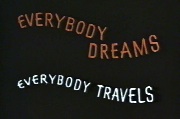|
VideoTapir posted:Public Radio is the shambling corpse of what used to be largely government-funded radio.
|
|
|
|

|
| # ? May 5, 2024 23:46 |
|
Sand Dan posted:I miss Coast to Coast AM with Art Bell yea
|
|
|
|
Live Wire is pretty bad, it's based in Portland (strike one), was considered as a replacement for A Prairie Home Companion (strike two, I am a lifelong Minnesotan and prairie home sucks), and the host interviewed Lindy West once (strike three)
|
|
|
|
I like to download NPR shows in podcast form and listen to them when I don't have a radio available.
|
|
|
|
FactsAreUseless posted:False. NPR, from its very first charter, was a public-private partnership. That's why I didn't say entirely; and the public part has been in decline for ages.
|
|
|
|
VideoTapir posted:That's why I didn't say entirely; and the public part has been in decline for ages. well sorta, but the "nonprofit worker diminishing grant pool commiseration station" is a thread unto itself, m'lord.
|
|
|
|
VideoTapir posted:That's why I didn't say entirely; and the public part has been in decline for ages. 1. There's an asymmetric relationship between NPR and member stations. NPR needs member stations to license its programs, and member stations are how it fulfills the mission part of its goals. However, member stations are even more reliant on NPR for their content, but at the same time are threatened by it. The digital age has been good for public radio because the "content for free, at-will donations" model is well-suited to the internet - it's why you're seeing so many other people and organizations adopt it. NPR is amazing at that kind of fundraising model. But it also means member stations are less and less relevant, unless they're large enough to produce content at distribute it to NPR, like WHYY, WBUR, WNYC, etc. It's easy to centralize your audience digitally, which is a problem for member stations if people get their content straight from NPR and not from their local broadcast station. Many are getting more and more into digital content, but that increasingly makes NPR a competitor, even though they're all in the same organization. 2. Funding problems mean member stations are losing their ability to focus on good community journalism. Especially because so many are dependent on universities for much of their budget and equipment, money is more and more limited. Stations carry national reporting from NPR, but have a tougher time hiring their own journalists. Smaller stations often band together in a region to create networks of journalists, which helps, but doesn't solve the problem. There's constant pressure on the station to act as a promotional arm of the university, regardless of their various codes of ethics - all of which point out that they serve their audience, not the college. But when the university can determine whether they even have the staff they need to function, that's difficult. And those stations can't rely on member or business support as well, because there are just fewer members and businesses in their areas. Many, many public radio services cover rural areas, which is an important part of the public radio mission. 3. Public radio isn't as subject to the whims of management as private media, but it answers to a huge number of different people. And, just like in private journalism, many of those people aren't concerned about good journalism. They're focused on their own careers and ambitions, their own organizations, their own businesses, or their own agendas. 4. Despite an effort to put diverse voices on the air - and public media is better at that than any private media at that scale - public radio leadership and boards of directors are largely wealthy white men. This limits public radio's perspective, which is a problem because of 5. NPR member donors, even to member stations rather than the national organization, are largely upper-middle white mainstream liberals. This isn't a problem because of the "NPR IS TOO LIBERAL" thing - it largely isn't, despite its reputation - it's a problem because it has a very limited point of view. Every NPR story has the assumed perspective of someone with enough money and status to own property, to own stock, to have children in good school districts. It means that NPR's coverage always comes from the same perspective, and whether you think that perspective is too liberal or too conservative (and it's pretty middle-of-the-road educated middle-class), it nonetheless holds it back from doing better reporting. There are programs like Code Switch or Latino USA that do a little better, but the organization as a whole can be pretty narrowly focused. That said, they still do better reporting than the vast majority of private organizations, and their willingness to at least try to look at the most vulnerable members of society is a very good thing. Having a mission-focused, rather than profit-focused, organization means a lot. 6. NPR management, especially at the member station level, and the NPR audience are largely older and resistant to change. Contrary to popular belief, young people do listen to public radio. They just listen digitally, to public radio podcasts or the NPR One app. But those young people have no voice in the decisions that are made. This means that NPR tends to be very slow to innovate. They don't take chances on new shows, and they keep older shows on way past when they make sense. NPR doesn't cancel failing programs because NPR programs largely don't fail - the audience wants to hear Prairie Home Companion every week. This is why many member stations still carry Car Talk reruns, even though they no longer produce new episodes. The audience fights any change, and that risks already-limited member donations. There is more innovation and new ideas at the digital level, fortunately, which is becoming increasingly relevant. But the vast majority of the NPR audience still consume radio first, and digital second. This is also why the best-known voices on NPR's biggest shows (Morning Edition and All Things Considered, consistently their top-rated programs in any category) have an average age of 65+. In all, it's less an issue of NPR's competence - they're the absolute best audio content producers around, many of their podcasts are amazing, their long-form reporting is the best audio storytelling you'll find anywhere, and they have a number of fantastic reporters - but a problem of public radio being unable to realize its full potential. They could be better, but their management is homogeneous, afraid of change, and struggling just to keep funded.
|
|
|
|
It has a distinct history and culture from the sorts of stations that air Rush Limbaugh. You're not going to see a sudden format change to right-wing talk because it's more profitable than easy listening.
|
|
|
|
FactsAreUseless posted:I honestly don't think it's their biggest issue. I wrote about this in another thread, but a decline in public funding is a problem, just not the only one. NPR has some serious structural problems right now, and some cultural ones. "It isn't 'Guns'N'Roses' on repeat or Sean Hannity crying about liberals". Got it.
|
|
|
|
Big Beef City posted:"It isn't 'Guns'N'Roses' on repeat or Sean Hannity crying about liberals". Got it.
|
|
|
|
All Things Considered is brought to you by America's Natural Gas Association, solving the world's problems and being the best thing ever! Learn more at ANGA.ORG
|
|
|
|
I own an "I heart WPR" shirt, because of fundraising poo poo. I'm aware of public radios' issues. I was just being flippant 
|
|
|
|
Heaps of Sheeps posted:All Things Considered is brought to you by America's Natural Gas Association, solving the world's problems and being the best thing ever! Learn more at ANGA.ORG
|
|
|
|
I'm so loving sick of The Moth and its degenerate effect on the entire Chicago lit scene. Everyone just runs their loving incestuous little "live without notes" events because they don't require any real amount of work or vetting to put on, and everyone has learned to tell their stories in the same bullshit This Is Important cadence that's just about the loving worst thing since slam poetry. Some moron was croaking into the microphone the other day about her loving middle school talent show and all I wanted was for the microphone to short out and electrocute her Final Destination style. loving hell
|
|
|
|
Storytelling with a BEAT! Ty for the long post about radio! V informative.
|
|
|
|
The KQED perspectives segment is awful. Retired Berkeley/SF liberals writing essays about topics such as: Taking kids to the desert Poison Oak Being mad about reservoirs Kids and cellphones while completely ignoring the horrific homeless and housing crises all around them.
|
|
|
|
Fellis posted:I'm guessing either You Bet Your Garden is a WHYY only program or gbs just has insane reverence for "car talk, but for plants and its dead serious". Anyway I like when people call in with their strange plant problems that I will never have. I've never heard of that, but it sounds interesting! My NPR affiliate does not carry it, though. I'm not partial to "Words You've Never Heard," but it's only about a minute long so it's not totally annoying. "A Way With Words" can also be annoying but in a different way. But at least on that show they talk about actual words people use.
|
|
|
|
Genderfluent posted:The KQED perspectives segment is awful. Retired Berkeley/SF liberals writing essays about topics such as: ive been listening to kqed for well over a decade and i dont think ive ever heard perspectives (or at least noticed, a lot of programming kind of blends together imo). what time is it on? There are certainly dumb topics on local ones like Forum, but I've heard plenty of local programming about homeless and housing crises on things like Forum and stuff e: ok its on at like 6:43 and 8:43 so ive heard it, but its just so short at like <10 minutes and blends in with everything else and im in a fugue state that early anyways. tbh some of them are kind of interesting and not like housing and homeless isn't talked about a lot on kqed, but some are definitely marin liberals.txt Xaris fucked around with this message at 19:48 on Jun 3, 2017 |
|
|
|
I have no opinion on Afropop Worldwide. It's probably fine.
|
|
|
|
Volcott posted:I have no opinion on Afropop Worldwide. It's probably fine.
|
|
|
|
The worst npr show is Chapo Trap House
|
|
|
|

|
|
|
|
Perfect face for radio
|
|
|
|
I like Tom Ashbrook, and most shows that attempt to stick to facts. This includes most of the news shows that kind of repeat the same stuff during daytime on my local station. There's a local show on Fridays at noon that talks about local history and I like that a lot because I'm boring I guess. I dislike the shows that blur the line between fact and opinion, and I think it's those shows that get NPR a "liberal bias" moniker from casual listeners who catch NPR while thumbing the seek button. Random: anyone else ever notice how interviewees on NPR almost always answer questions by starting their sentence with "So..."
|
|
|
|
angryrobots posted:I like Tom Ashbrook, and most shows that attempt to stick to facts. This includes most of the news shows that kind of repeat the same stuff during daytime on my local station. There's a local show on Fridays at noon that talks about local history and I like that a lot because I'm boring I guess.
|
|
|
|
I like OP but Ashbrook wants to stay "balanced" so badly he twists himself like a pretzel.
|
|
|
|
I thought that Joshua Johnson was white for a while, but then I found out that he's not.
|
|
|
|
I'm kojo nnamdi
|
|
|
|
FactsAreUseless posted:NPR's music stuff is mostly good, if you like the kind of music they play. I liked KUAC in Fairbanks, AK. They had the typical NPR jazz and classical shows, but also a wide variety of other stuff. Vs. most NPR stations I've heard which are ALL JAZZ AND CLASSICAL ALL THE TIME. Combine that with the at-the-time-excellent college station and radio in my home town was pretty good. Oh, and on the subject of NPR's rich white audience/donor base: In my limited experience attending live performances of such, there's one sure way to tell if a jazz performance is going to suck. If the audience has zero black people in it, it is going to be awful.
|
|
|
|
angryrobots posted:Random: anyone else ever notice how interviewees on NPR almost always answer questions by starting their sentence with "So..." So, does anyone remember when titling a thread that way was a bannable offense on these very forums?
|
|
|
|
free imus
|
|
|
|
Any news program that opens up the phones for listeners to call in. No I don't want to know what Pat in Alameda County wants to say.
|
|
|
|
slave to my cravings posted:I'm kojo nnamdi I'm Lakshmi Singh
|
|
|
|
ikanreed posted:The worst npr show is Chapo Trap House once the chapo with kai ryssdal is released radio and podcasts alike will have attained apotheosis and we can all stop listening
|
|
|
|
angryrobots posted:I'm Lakshmi Singh Hey baby, I like your reporting.
|
|
|
|
Soraya Sarhaddi Nelllllllllllllllllllllllllllllllllllllllllllllllllson
|
|
|
|
*in the most anglicized accent possible* I'm Lakshmi Singh
|
|
|
|
Im Ready for DEATH posted:*in the most anglicized accent possible* There's a woman named Chion Wolf at my local station. I pass on the knowledge of the spelling of her first name to you. It is a gift. (WQXR just took a second to report some SPORTS and you could tell it caused the announcer physical pain to not be talking about Mozart for that 15 seconds.)
|
|
|
|
Im Ready for DEATH posted:Soraya Sarhaddi Nelllllllllllllllllllllllllllllllllllllllllllllllllson The most annoying sign off, ever.
|
|
|
|

|
| # ? May 5, 2024 23:46 |
|
Heaps of Sheeps posted:All Things Considered is brought to you by America's Natural Gas Association, solving the world's problems and being the best thing ever! Learn more at ANGA.ORG Gazpacho fucked around with this message at 23:39 on Jun 3, 2017 |
|
|































